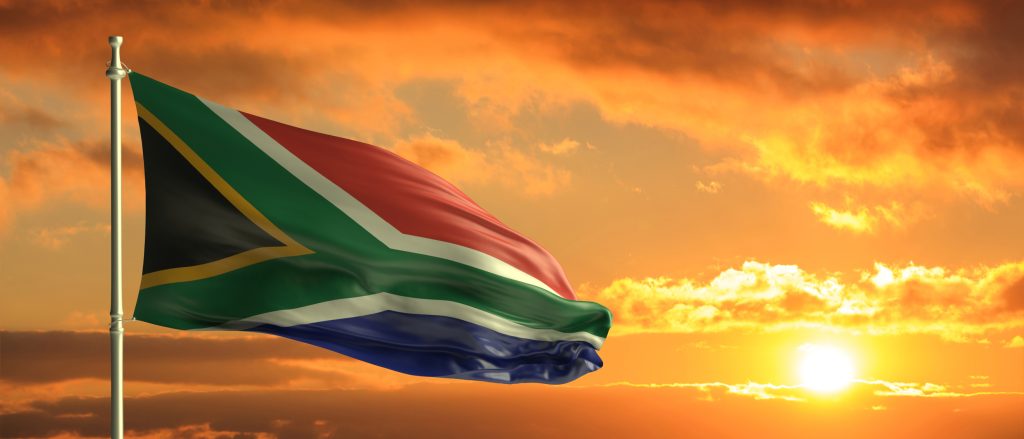South Africa Classifies Afrikaans as ‘Foreign’

South Africa’s authorities has touched off a storm after it moved to classify native Afrikaans as a “foreign language.” For clarity’s sake, below is a speculation: this shift would be very similar to the US secretary of instruction instantly waking up and classifying English as a international language in America’s college curriculum.
Afrikaans is a regionally constructed dialect of the unique European Dutch language. White colonial settlers of Dutch, Germanic, and French origins built Afrikaans on landing in South Africa in the 1600s. Their descendants amount four million these days in South Africa. Black South Africans make up around 47 million out of the nation’s 60-million-strong inhabitants.
“Afrikaans has a sensitively contested background as the language of Black enslavement and racist apartheid law enforcement in South Africa. For Black South Africans, Afrikaans is a scene of a colonial crime,” says Kudakwashe Magezi, a sociologist and immigration legal rights activist in South Africa.
“For example, on 16 June 1976, countless numbers of Black South African little ones in Soweto township, South Africa, marched in opposition to the colonial government’s initiative to impose Afrikaans as the exceptional classroom language of instruction and power Black learners to recite the Lord’s Prayer. Among 400 to 700 ‘rebellious’ Black students had been murdered by White Afrikaans policemen in a working day.”
Language of Instruction
Since the conclusion of racist apartheid rule in South Africa, Afrikaans has been one particular of the country’s 8 formal languages and is the 3rd most spoken language in the region. But as Black South African postcolonial nationalism will take root, there have been gradual endeavours to dismantle the use of Afrikaans as element of a mission to revive marginalized Black South African languages.
So, in Oct 2020, Mr. Blade Nzimande, the South African minister of education and learning, proposed an education and learning bill that seeks to power South Africa’s universities to designate additional experiments in formerly marginalized Black South African languages and tackle the linguistic injustices of European colonialism in the state. Afrikaans was promptly specified a ‘foreign’ European language whose use in South Africa’s universities’ faculties ought to be discouraged.
Outcry
Leaders of the White Afrikaans-speaking minority group in South Africa, who are primarily descendants of Dutch colonists, have hauled South Africa’s governing administration ahead of courts and the UN Educational, Scientific, and Cultural Group about the try to reclassify Afrikaans as a international language.
“This is disgusting reverse racism,” suggests Leon Schreiber, a White Afrikaans-talking lawmaker of Dutch ethnicity. Mr. Schreiber accuses the Black postcolonial South African authorities of bigotry and hatred of Afrikaans society and language.
“White Afrikaans-talking pupils are limited to only 5% of areas in medical colleges, they are properly stood down in army, put up business office, police, banking employment in favor of Black interns. The South Africa training minister overtly hates the Afrikaans language,” claims Mr. Schreiber.
The Afrikaans-talking community in South Africa is asking why the language is instantly staying categorised as foreign in the country although English, an additional colonial European language, remains untouched.
“This is the peak of myopic discrimination. Afrikaans is invented in South Africa, not in Europe in Holland,” fumes Alana Bailey of Afriforum, a White foundation that will work to advance Afrikaans speakers’ language, education, and community legal rights in South Africa. In May perhaps 2021, Afriforum sued the College of South Africa for discrimination because it experienced taken out Afrikaans as the language of instruction at the college. Afriforum gained the case in September, when the South Africa Supreme Courtroom declared that the designation of English as the only official language of instruction at the College of South Africa was unconstitutional. The court additional affirmed that college students of all ethnicities in South Africa have a suitable to be instructed in their mom languages alternatively than becoming subjected to English.
“It was a glorious judgment,” claims Bailey. “The racist try to marginalize Afrikaans language in postcolonial South Africa is simply that—racist and shameful.”
Reverse Racism
Supporters insist that Afrikaans, an off-shoot of the European Dutch language, has roots (similes, verbs, accents, cues) produced in South Africa over 400 years.
“This reclassification of the Afrikaans language as international is a sample of the reverse racism currently endured by White Afrikaans South Africa citizens,” adds Bailey.
Nonetheless, Mr. Nzimande insists that he harbors no prejudice in opposition to the Afrikaans language: “The White ideal wing is more than-occupied with the supremacy of Afrikaans language only and consequently disregarding the nine other languages in postcolonial South Africa. We are now a assorted, democratic South Africa, and Afrikaans has no exclusive guide over other languages.”
